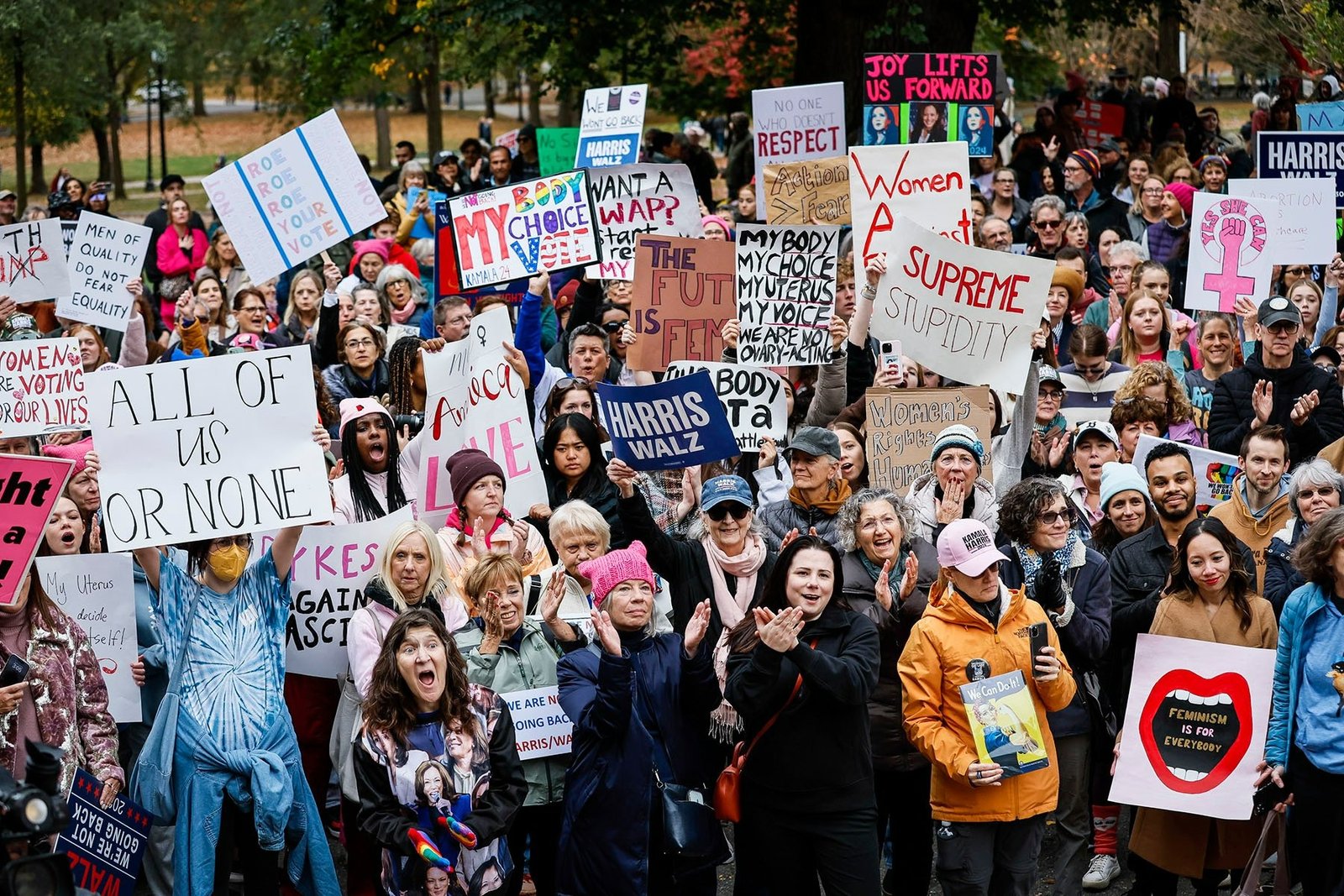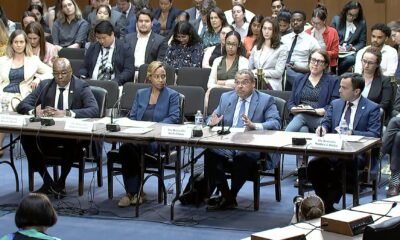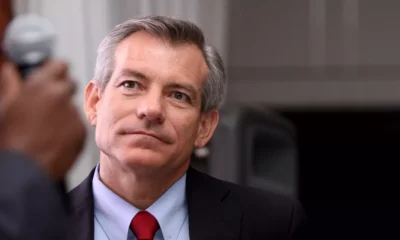abortion
Abortion Rights Groups Gear Up for Battle in a Potential Trump Era

President-elect Donald Trump’s victory has invigorated anti-abortion groups, coinciding with notable successes for abortion rights advocates during the recent elections. Now, reproductive rights organizations are bracing for an array of legal and legislative confrontations in what many perceive as a less supportive political landscape.
These groups plan to adopt a multi-faceted strategy: challenging restrictive anti-abortion policies in court, organizing protests, and lobbying lawmakers at both state and national levels to reject proposed bans.
“We’re going to utilize every available resource, whether through the courts, legislatures, or public demonstrations,” said Jessica Arons, a policy director at the ACLU.
Historically, abortion rights activists have concentrated their efforts on ballot initiatives to establish abortion protections in state constitutions. This approach has successfully enshrined rights in 11 states and thwarted anti-abortion measures in two since the Supreme Court’s decision in Roe v. Wade was overturned.
However, this strategy appears to be reaching its limits. Only four states—Arkansas, Idaho, North Dakota, and Oklahoma—remain where voters have yet to determine abortion rights through direct democracy. This year’s attempt to secure an abortion rights measure for Arkansas was blocked in court. These states, along with Florida, Nebraska, and South Dakota, where previous measures failed, may become focal points in the upcoming elections.
The potential for ballot measures remains uncertain. “We’ll evaluate what happened and identify our next steps,” said Jennifer Dalven, director of the ACLU’s Reproductive Freedom Project.
As the focus shifts away from direct votes, abortion rights organizations, from prominent national bodies like the ACLU to smaller local abortion funds, are reinforcing existing protections and preparing for increased defense against forthcoming restrictions.
“Our primary challenge will be to defend current access points while resisting invasive governmental interference in personal decisions,” noted Ashley All, a political strategist involved in significant abortion rights campaigns. “It’s crucial for Americans to vocally oppose any attempts by politicians to infringe upon their rights.”
The landscape ahead largely depends on the level of influence wielded by anti-abortion groups under the new Trump administration. During his previous term, Trump aligned closely with anti-abortion advocates, although there are emerging concerns about the increasing unpopularity of such restrictions.
Anti-abortion efforts are still gaining momentum, particularly around limiting access to abortion medications. Despite being a nominee for the Department of Health and Human Services, Robert F. Kennedy Jr. has shown inconsistency regarding national abortion policies, which raises eyebrows among anti-abortion factions. There’s speculation that he may consider appointing staunch abortion opponents to key positions.
Beyond federal moves, some anti-abortion advocates aim to restrict online resources that assist individuals in navigating around state bans. One group, Students for Life, is drafting model bills prohibiting the distribution of abortion pills and granting legal personhood to fetuses.
With the anticipated challenges ahead, abortion funds like the Chicago Abortion Fund are preparing for heightened demand. By expanding their staff to accommodate Spanish speakers, they are focusing on support for callers from states like Florida, where strict bans persist after a failed ballot initiative.
“Our commitment is long-term, but we will face difficult decisions to maintain our sustainability,” stated Qudsiyyah Shariyf, interim executive director of the fund.
Similarly, the Brigid Alliance is looking into expanding support for clients needing to travel for care. They also consider the option of assisting clients in traveling overseas for procedures as a contingency plan should national restrictions become implemented.
“Advocacy organizations must align with us to combat potential national bans,” emphasized Serra Sippel, the fund’s executive director. “This presents the most significant threat to care.”
Many hope that a strong public resistance could render a national abortion ban politically unfeasible. “We are prepared to mobilize our members to combat any attempts to erode abortion rights on a federal level,” pledged Arons.
Expectations for the future are mixed, as both health policy analysts and reproductive rights organizations anticipate a less protective federal climate for abortion rights. Under President Joe Biden, federal agencies took steps to secure access to abortion, but prevailing challenges are expected under Trump.
Lawyers and advocates are gearing up for intense legal battles. “We are prepared to challenge any unlawful actions aimed at obstructing access to abortion care,” assured Lorie Chaiten, a senior staff attorney at the ACLU’s Reproductive Freedom Project.
Despite these concerns, there remains a glimmer of hope that Trump might refrain from enacting unpopular restrictions, particularly as public opinion tends to favor abortion rights in critical swing states.


















